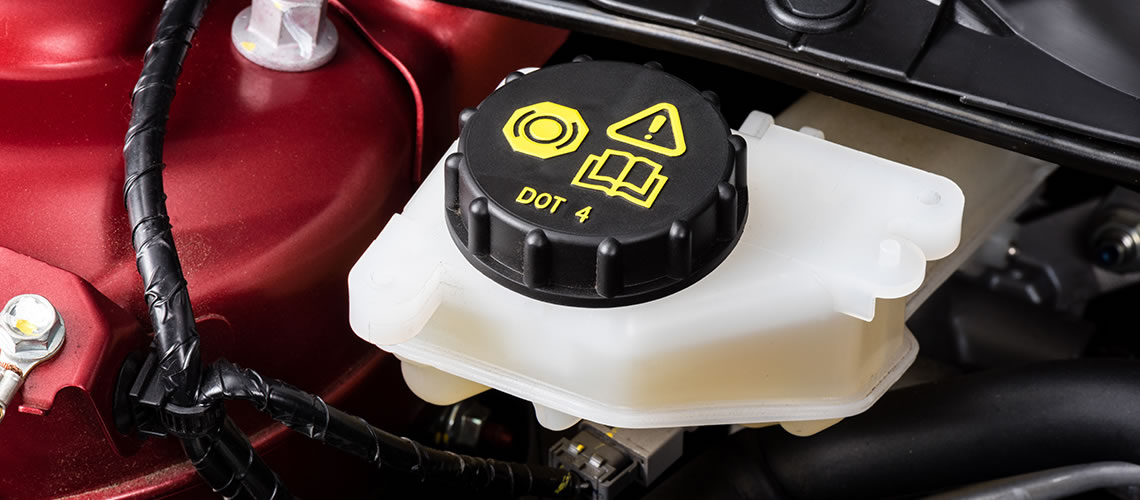ALL YOU NEED TO KNOW ABOUT BRAKE FLUIDS

Brake fluid is a crucial hydraulic fluid that plays a vital role in the operation of a vehicle's braking system.
It is responsible for transmitting the force and pressure applied to the brake pedal to the brakes themselves, allowing the vehicle to slow down or come to a complete stop.
One of the key properties of brake fluid is its high boiling point.
During braking, intense heat is generated due to the friction between the brake components, such as brake pads and rotors or brake shoes and drums.
Brake fluid with a high boiling point can withstand these elevated temperatures without vaporizing.
If the boiling point of the brake fluid is too low, it can lead to the formation of vapor bubbles, causing brake fade and a loss of braking performance.
Another important property of brake fluid is its low compressibility.
Brake systems are designed to provide a firm and responsive pedal feel, and low compressibility ensures that the force applied to the brake pedal is efficiently transmitted to the brakes.
This allows for precise control over braking and enhances the overall responsiveness of the vehicle.
Brake fluid also needs to be corrosion-resistant to protect the various metal components within the braking system.
Over time, brake fluid can absorb moisture from the atmosphere, leading to the formation of rust and corrosion within the brake lines, cylinders, and calipers.
Corrosion can compromise the integrity of the braking system and potentially lead to brake failure, making corrosion resistance a critical property of brake fluid.
Additionally, brake fluid acts as a lubricant for certain components of the braking system.
It helps reduce friction and wear between moving parts, such as the master cylinder, wheel cylinders, and caliper pistons.
This lubrication ensures smooth operation and prolongs the lifespan of these components, contributing to the overall longevity and reliability of the braking system.
It is important to note that there are different types of brake fluid, categorized based on their chemical composition and performance characteristics.
Common types include DOT 3, DOT 4, DOT 5, and DOT 5.1.
Each type has specific properties and is designed for different applications.
It is crucial to use the correct type of brake fluid recommended by the vehicle manufacturer to ensure compatibility and optimal performance.
Proper maintenance of brake fluid is essential for the safe and efficient operation of the braking system.
Over time, brake fluid can degrade and become contaminated with moisture, reducing its effectiveness.
Regular checks of the brake fluid level and condition, as well as periodic flushes and replacements according to the manufacturer's recommendations, are necessary to maintain the quality of the brake fluid and ensure reliable braking performance.

 Loading..
Loading..